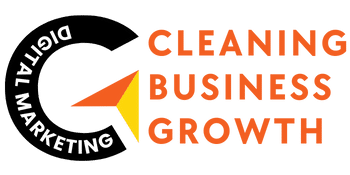What’s Changing—and What Isn’t
Search is moving fast with AI, new features, and constant updates. One thing hasn’t changed: Google’s goal is to help people find useful information quickly. To win, content must be helpful, clear, and relevant—not stuffed with keywords or written for bots.
The New Rule: Be Genuinely Useful
Google rewards pages that answer real questions, save time, and point people to the next step. That means writing for humans first and matching what a searcher actually wants in the moment.
Think “User Journey,” Not Just Keywords
People search for different reasons at different times. Plan content for each stage:
Awareness: Learning the Basics
-
Explain the topic in simple terms
-
Show common mistakes and quick wins
Consideration: Comparing Options
-
Side-by-side comparisons, pros/cons, pricing ranges
-
Checklists and worksheets to help decide
Decision: Ready to Act
-
Clear offers, FAQs, guarantees, reviews, and next steps
-
Short forms and fast booking links
Make Content Easy to Use
Map Queries to Intent
Break big topics into focused subpages that match specific questions (e.g., “deep cleaning vs. standard cleaning,” “move-out cleaning checklist”).
Deliver Actionable Help
Use step-by-steps, templates, and examples people can apply right away. Link to tools or calculators when helpful.
Design for Skimming
Use clear headings, short paragraphs, and quick summaries. Put key takeaways near the top.
Add Helpful Media
Use images, short clips, or diagrams when they explain faster than text. Include captions and alt text.
Write for AI Overviews and Summaries
AI features favor content that is concise, accurate, and instantly useful.
How to Align
-
Lead with a short, direct answer
-
Follow with a brief “how it works” or checklist
-
Fact-check and cite sources when relevant
-
Add something extra: tips, pitfalls, or a printable guide
What No Longer Works
Keyword Stuffing and Word Count Goals
Padding pages with keywords or chasing a specific length won’t help. Quality beats quantity.
Thin, Generic Content
If a page doesn’t teach, guide, or solve a problem, it won’t rank for long.
User Experience Matters
Speed and Mobile
Fast load times, clean design, large tap targets, and readable text on phones.
Clear Navigation
Simple menus, internal links to related topics, and obvious next steps.
Earn Featured Snippets
Answer common questions directly and briefly near the top. Use lists or tables when they help.
Prepare for What’s Next
Voice Search
Write in a natural, question-and-answer style. Include quick, spoken-friendly answers.
Personalization
Use audience insights to tailor examples, locations, and recommendations.
Real-Time Relevance
Refresh pages for seasons, promotions, or local events. Keep details current.
Simple Workflow to Follow
-
Research intent: List the top questions people ask at each stage.
-
Plan pages: One main topic per page; link to related subtopics.
-
Draft for clarity: Lead with the answer, then show how to do it.
-
Add assets: Checklists, visuals, short videos, and internal links.
-
Ship and measure: Track clicks, conversions, and time on page.
-
Improve regularly: Update facts, tighten copy, and add missing steps.
Key Takeaways
-
Match content to what people want right now.
-
Be clear, accurate, and actionable.
-
Design for skimming and mobile.
-
Measure real outcomes (clicks, sign-ups, bookings), not just “opens” or vanity metrics.
-
Stay agile: review performance, watch trends, and keep improving.
Build pages that answer questions better and faster than anyone else, and you’ll rank higher—and help more people get what they came for.
About the Author
Cleaning Business Growth is a digital marketing agency focused on the residential cleaning industry. We provide digital marketing services to help cleaning business owners grow their businesses. Learn more about how SEO services can get you the visibility you need to thrive and grow.
